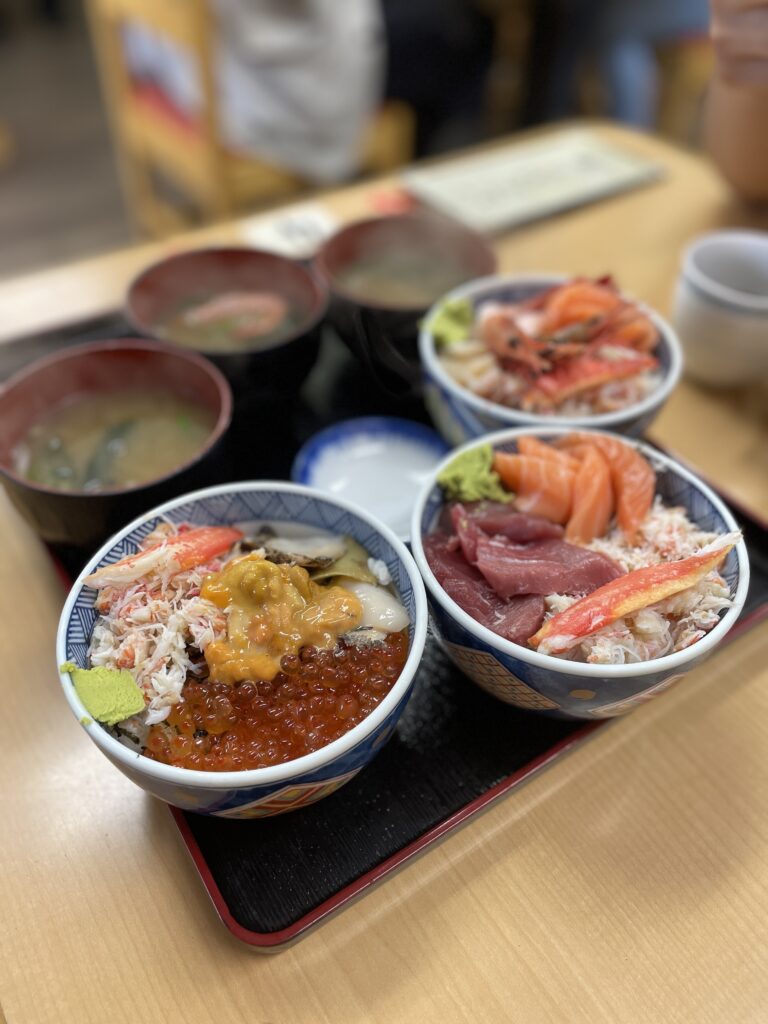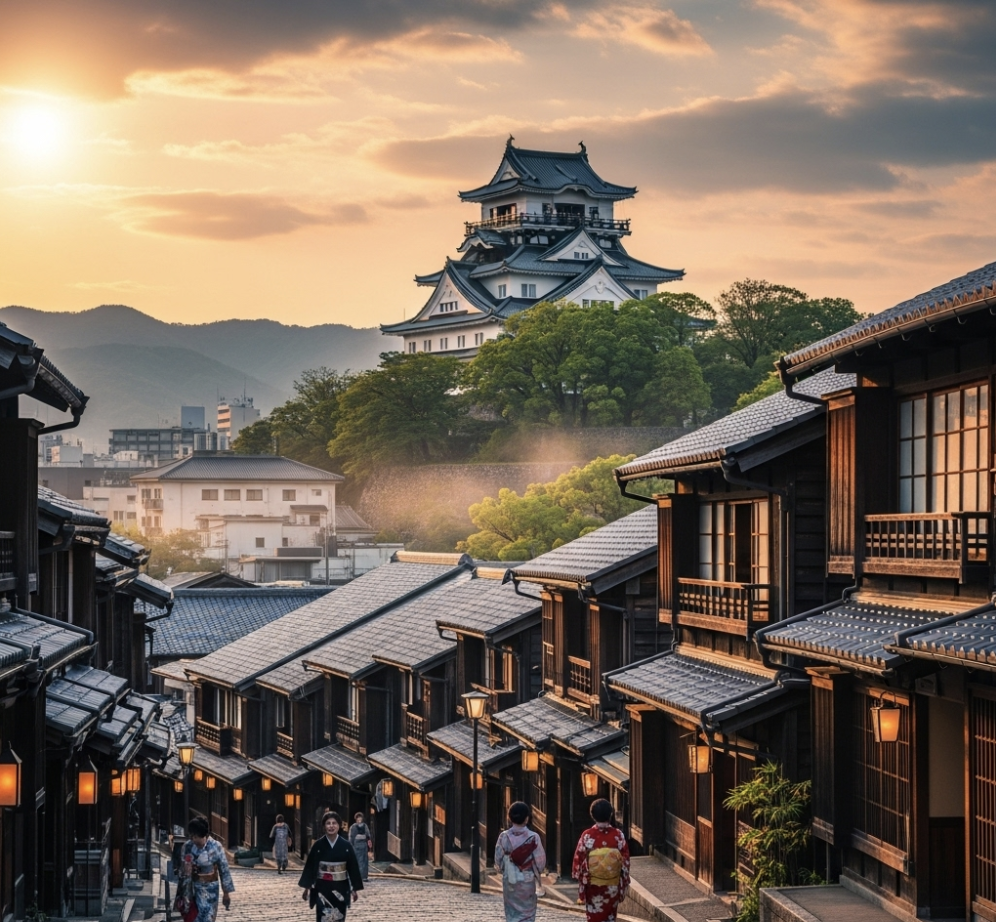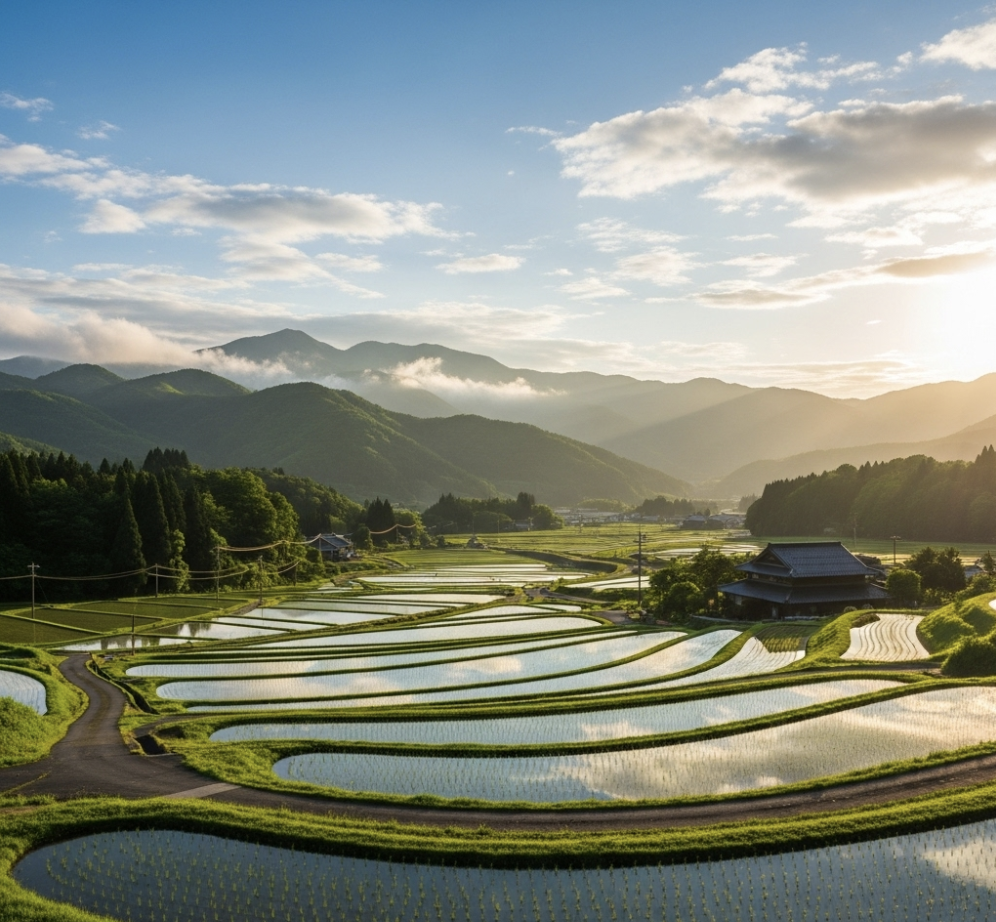Have You Ever Thought, “Is It Too Late for Me?”

Have you ever dreamed of moving to Japan after 40, but caught yourself thinking, “I’m too old to start over”? You’re not alone. Many people in their 40s, 50s, and beyond reach a point where they want something new — a career shift, a slower lifestyle, or maybe even a complete reinvention.
But here’s the truth: it’s absolutely possible. I’ve met teachers, professionals, and even retirees who’ve successfully built fulfilling lives here in Japan — many of them well past 40.
I understand the fears. Which visa do you need? Can you afford it? Will you adapt to the language and culture? I’ve spent over 20 years running an English school in Niigata, welcoming instructors from around the world. I saw them arrive nervous, often overwhelmed — but with the right support, they found their place here.
This guide pulls together everything I’ve learned so you can do the same.
Here’s what we’ll cover:
- Why Japan appeals to midlife expats
- The main visa options (and what to know if you’re over 40)
- Cost of living breakdowns
- Best cities and regions for foreigners 40+
- How to adjust to life in Japan without feeling lost
By the end, I hope you’ll feel less anxious and more inspired. Because no matter your age, a fresh start in Japan is within reach.able resource for foreigners (especially 40–60-year-olds) considering a move to Ja
Why Move to Japan After 40?
Japan attracts people of all ages, but there are special reasons why it’s especially appealing in midlife:
- Safety & Peace of Mind. Japan is one of the safest, cleanest countries in the world. For many, it feels like the perfect environment to slow down and enjoy life.
- Healthcare You Can Rely On. Japan’s world-class healthcare system is accessible and surprisingly affordable, even for foreigners. For anyone in midlife, this is a huge advantage.
- Cultural Richness. Imagine living where ancient temples meet futuristic cities, or where a peaceful tea ceremony can be just as normal as a high-speed train ride.
- Work & Business Opportunities. Many foreigners teach English, start small businesses, or work remotely while living in Japan. If you have professional expertise, Japan values it.
- A Place for Reinvention. Perhaps you’ve raised a family or worked in one career for decades. Moving here can be your chance to start a new chapter.
I’ve met people who arrived in their 40s and 50s saying, “I wish I had done this sooner.” But they also tell me they were glad they made the leap when they did.
Visa Options for Expats Over 40
One of the first questions about moving to Japan after 40 is: which visa do I qualify for?
1. Work Visa
The most common route. You’ll need a degree or proven career experience. Categories include:
- Teaching English — still possible after 40, especially with universities, private schools, or tutoring where maturity is valued.
- Specialist in Humanities / International Services — for careers like IT, engineering, design, finance, or translation.
👉 Tip: Highlight your experience and reliability. Japanese employers respect stability and professionalism.
2. Spouse or Dependent Visa
If you’re married to a Japanese citizen or permanent resident, this visa is straightforward and flexible. It also allows you to work without restrictions.
👉 Age is not a factor here.
3. Investor / Business Manager Visa
Have savings or want independence? This visa is for those who start a business in Japan.
- Requires about ¥5 million (around $35,000 USD) in investment.
- Popular among midlife expats who open schools, guesthouses, or consulting firms.
4. Student Visa
Yes, you can still study after 40! Many people enroll in Japanese language schools or even vocational courses. Some then switch to work visas later.
5. Permanent Residency
Usually after 10 years in Japan (less if married or considered “highly skilled”). Permanent residency frees you from visa renewals.
6. “Retirement” in Japan?
Japan doesn’t have a formal retirement visa. But long-term stay is possible through:
- Spouse visas
- Business visas
- Repeated long-stay renewals
- Eventually, permanent residency
👉 If you dream of retiring here, think ahead about healthcare, housing, and financial proof of stability.
Curious about the different visa types and which one might fit your situation best?
👉 Read my full guide: Visa Options for Midlife Movers: Moving to Japan After 40
Cost of Living in Japan for Midlife Expats
When planning for moving to Japan after 40, budgeting for housing, healthcare, and daily life is key.
Housing
| Prefecture | Housing (1BR/month) | Food & Groceries | Overall Cost (est.) | Lifestyle Highlights | Nankai Trough Risk |
|---|---|---|---|---|---|
| Tokyo | ¥150,000+ ($1,000+) | ¥40,000–¥60,000 ($280–$420) | High | Big-city energy, jobs, expat hubs | Higher |
| Niigata | ¥50,000–¥80,000 ($350–$550) | ¥30,000–¥45,000 ($210–$315) | Low–Moderate | Nature, seafood, hot springs, snowy winters | ✅ Lower (outside zone) |
| Kanazawa (Ishikawa) | ¥60,000–¥90,000 ($420–$630) | ¥30,000–¥45,000 ($210–$315) | Moderate | “Little Kyoto,” art + culture, manageable size | ✅ Lower (outside zone) |
| Fukuoka | ¥65,000–¥100,000 ($450–$700) | ¥35,000–¥50,000 ($245–$350) | Moderate | Friendly city, food culture, airport hub | ✅ Lower (farther from zone) |
| Shizuoka | ¥70,000–¥110,000 ($490–$770) | ¥35,000–¥55,000 ($245–$385) | Moderate–High | Mt. Fuji, seaside living, Tokyo access | ⚠️ Higher (within zone) |
| Kagawa (Shikoku) | ¥45,000–¥70,000 ($315–$490) | ¥28,000–¥40,000 ($200–$280) | Low | Udon, island-hopping, slow lifestyle | ⚠️ Higher (within zone) |
Utilities & Internet
- Electricity, gas, water: ¥15,000–¥25,000 ($100–$170).
- Internet: ¥4,000–¥6,000 ($30–$50).
Food
- Groceries: ¥30,000–¥50,000 ($200–$350) per person.
- Eating out: ¥800–¥1,500 per meal.
Healthcare
- Expect to budget around ¥20,000 ($150) per month for NHI, depending on income. If you prefer coverage that also works while traveling or before you register your address in Japan, SafetyWing is a flexible option worth considering.
🌸 Quick Insights
Expensive but opportunity-rich: Tokyo.
Budget-friendly: Niigata & Kagawa (low rent, cheaper food).
Balanced lifestyle: Kanazawa & Fukuoka (moderate costs, culture + community).
Scenic but riskier: Shizuoka & Kagawa (beautiful, but more exposure to Nankai risk).
Best Places to Live in Japan for Foreigners Over 40


Choosing where to live can shape your entire experience of moving to Japan after 40. When you’re in your 40s, 50s, or 60s, it’s not just about jobs or nightlife anymore — it’s about balance. You may be looking for safety, access to healthcare, affordability, culture, or simply a sense of community.
Japan has regions that offer all of this, sometimes in unexpected ways. Here are a few places that might surprise you and make you think, “So Japan has places like this too…”
🌿 Niigata — Seasons, Snow, and Peace of Mind
Niigata, on the Sea of Japan coast, offers rice fields, mountains, hot springs, and fresh seafood. Winters are snowy (perfect if you like skiing or cozy evenings at home), while summers are famous for fireworks and festivals.
✨ Bonus: Niigata lies outside the projected Nankai Trough disaster zone, making it one of the calmer choices for those concerned about earthquakes.
🎨 Kanazawa (Ishikawa) — Culture Without the Crowds
Often called “Little Kyoto,” Kanazawa blends samurai history, gardens, and modern art museums — but without the tourist rush of Kyoto itself. It’s a city where you can enjoy tea houses one afternoon and cutting-edge art the next.
✨ Bonus: Like Niigata, Kanazawa sits on the Sea of Japan side, away from the Nankai Trough’s highest-risk areas.
🌊 Fukuoka — A Friendly Gateway City
Fukuoka is one of Japan’s most livable cities: warm climate, famous Hakata ramen, and a major international airport. It has everything you need without the overwhelming pace of Tokyo.
✨ Bonus: Fukuoka is farther from the Nankai Trough’s danger zone, making it a popular choice for those who want both safety and city conveniences.
🗻 Shizuoka — Mount Fuji Views and Ocean Breezes
Few places can compete with Shizuoka’s scenery — imagine waking up with Mount Fuji in the distance. Located between Tokyo and Nagoya, it’s a convenient base with easy bullet train access.
⚠️ Note: Because Shizuoka borders the Pacific, it’s often included in Nankai Trough risk maps. Many who live here balance this with strong disaster-preparedness planning.
⛵ Kagawa (Shikoku) — Udon, Islands, and Slow Living
Kagawa Prefecture, on Shikoku Island, offers ferries to the Setouchi art islands, a relaxed lifestyle, and Japan’s best udon noodles. It’s small, welcoming, and perfect if you want a quieter life.
⚠️ Note: Kagawa is closer to the Nankai Trough zone, so like Shizuoka, it carries more risk in a megaquake. Still, for those drawn to art, island life, and slower rhythms, it’s a rewarding choice.
🌸 Choosing What Fits You
If you value peace of mind and safety, places like Niigata, Kanazawa, or Fukuoka are reassuring and full of charm.
If you crave scenic beauty or creativity, Shizuoka and Kagawa offer incredible lifestyles — just be mindful of disaster preparedness.
In your 40s, 50s, or 60s, moving isn’t just about logistics — it’s about imagining where you’ll feel at home. Japan has more variety than most people realize, and the right place for you may not be the one that makes the headlines.
Adjusting to Life in Japan as a Midlife Foreigner
Learning Japanese
Even a little Japanese goes a long way. It helps with shopping, chatting with neighbors, and building confidence in daily life.
If you’re looking for an easy way to start, one option I recommend is iTalki. It connects you with Japanese teachers online, so you can learn at your own pace from anywhere. Many of my readers in their 40s and 50s especially like it because it feels less intimidating than joining a big classroom.
👉 If you’d like more tips, don’t forget I’ve also written free Learning Japanese articles here on the blog.
Building a Community in Japan After 40
Community looks different depending on where you live. Some expats in their 40s and beyond settle in big cities like Tokyo or Osaka, where meetups and events happen almost every day. Others choose the quieter rhythm of rural Japan — where life is more affordable, neighbors know your name, and community ties feel stronger.
The beauty is that you don’t have to choose just one. Many foreigners live in the countryside and visit nearby cities occasionally for language cafés, cultural workshops, or international gatherings. This balance means you can enjoy the peace of rural living while still tapping into the energy and connection of city life when you want it.
🌟 Benefits of This Balance
- Lower costs in rural areas (housing, food, lifestyle).
- Closer ties with Japanese neighbors and community.
- Cultural depth through festivals, volunteering, and local events.
- Easy access to city life when you want international meetups, hobby circles, or professional networks.
In the end, building a community after 40 in Japan isn’t about fitting into one mold — it’s about finding the mix of local ties and broader networks that feels right for you.
My Perspective: From Grandfather’s Hotel to Supporting Expats
From the hotel my grandfather founded on Sado Island to the English school I’ve run in Niigata, I’ve spent a lifetime surrounded by hospitality and cross-cultural exchange.
Along the way, I’ve met foreigners of all ages — some in their 20s, some in their 50s — who decided to make Japan home. They inspired me with their courage and persistence. Now, it’s my turn to give back: to share what I’ve learned and help you avoid feeling lost as you begin your own journey.
Final Thoughts: Reinvention, Not Limitation
So, is it difficult to move to Japan after 40? Yes, there are challenges. But the bigger truth is this: age can be your strength. You bring experience, resilience, and perspective that younger movers often don’t have.
Moving to Japan after 40 isn’t an ending — it’s a new beginning.
Whether you’re coming for work, retirement, or adventure, you don’t have to do it alone. I’ll be here sharing stories, tips, and guidance every step of the way. In the end, moving to Japan after 40 isn’t about age — it’s about embracing your next chapter with confidence and joy.🌸

